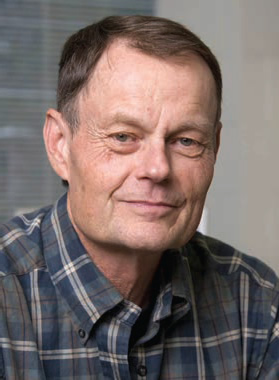Roger L. Dixon
MS 1972, PhD 1975, Physics
 "I learned how to do high-energy particle physics at Purdue. I also learned how to survive in the field. When I arrived at Purdue, I thought I wanted to be a theorist. My adviser, Professor Fuchs, told me I would also need to take lessons in learning to drive a taxi. It was probably good advice. Of course, I had some rigorous courses that taught me some physics. Now, I am thinking more about theory and learning to drive a taxi."
"I learned how to do high-energy particle physics at Purdue. I also learned how to survive in the field. When I arrived at Purdue, I thought I wanted to be a theorist. My adviser, Professor Fuchs, told me I would also need to take lessons in learning to drive a taxi. It was probably good advice. Of course, I had some rigorous courses that taught me some physics. Now, I am thinking more about theory and learning to drive a taxi."
Roger Dixon doesn’t mind changing jobs. But he clearly prefers staying with one employer. And he’s done just that, working in numerous research leadership roles at the Fermi National Accelerator Laboratory for more than 35 years.
After a short stint as a postdoc at Cornell, he joined Fermilab in 1977. There, Dixon has served as head, project manager or program director for several major high-end physics laboratories, including the $120 million Tevatron, the world’s second-highest energy particle collider.
“I have spent most of my career trying not to be in charge of anything, a tactic that is very effective for achieving the contrary result,” he says.
In leading Tevatron for a decade, he’s proud of the giant atom smasher’s impact on particle physics and how it has supported research for hundreds of published scientific papers.
Before Tevatron, he led efforts in the early 1980s to build the first large-scale superconducting string of magnets in a beam line. From 1993-97, he directed the design and construction of the Cryoginics Dark Matter Search experiment.
Known as CDMS, it remains one of the world’s most sensitive dark matter experiments. Another important role has been in outreach and education. He has served as Siemens Science and Technology judge for all 13 years of that competition. And he inherited a summer internship program from Leon Lederman and Drasko Jovanovic.
To this day, Saturday Morning Physics offers lectures, multimedia presentations and hands-on demonstrations that appeal to general audiences.
“Saturday Morning Physics has the largest impact on society by encouraging bright young people to study science,” he says.
Education
BS ’70, Physics/Mathematics, New Mexico Highlands University
MS ’72, Physics, Purdue University
PhD ’75, Physics, Purdue University
Career highlights
2003-Present Head, Accelerator Division, Fermilab
1998-2002 CDMS Project Manager, Fermilab
1992-96 Head, Research Division, Fermilab
1987-92 Co-project Manager, Dzero Detector, Fermilab
1986-87 Head, Program Planning, Fermilab
1983-84 Head, Experimental Areas Department, Fermilab
1977-81 Head, Beam Switchyard Group, Fermilab